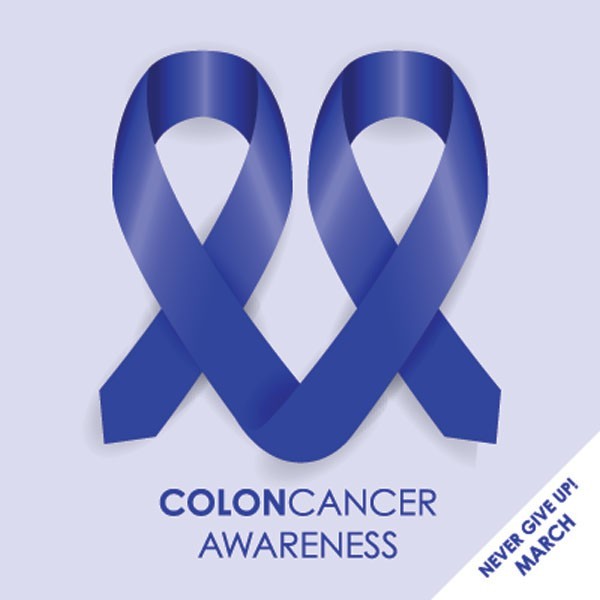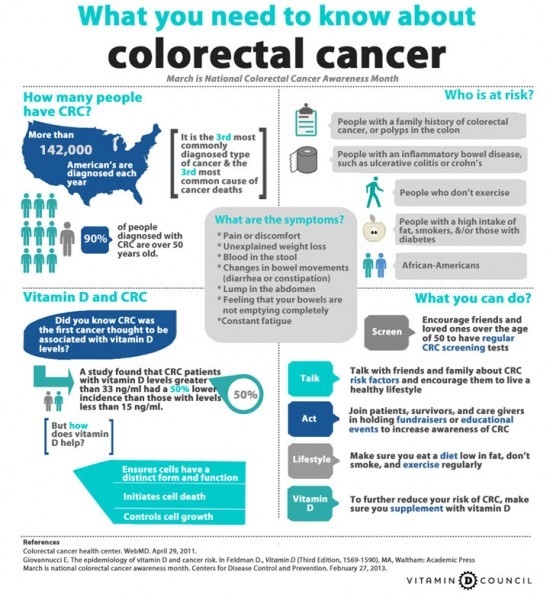March is Colon Cancer Awareness Month. Colon cancer is the second leading reason of cancer death in the U.S., but it does not have to be! It is one of the most preventable forms of cancer. Nine out of 10 colon cancers could be prevented or effectively treated with regular colon cancer screenings.

You can save lives by supporting spread awareness about this disease and the importance of screening during March. In February 2000, President Clinton officially committed March as National Colon Cancer Awareness Month.
[sc:336×280 ]
Since then, it has grown to be a rallying point for the colon cancer community where thousands of patients, survivors, caregivers and advocates throughout the country join together to spread colon cancer awareness by wearing blue, holding fundraising and education events, talking to friends and family about screening and so much more.
Most Canadians do not like to talk about colon cancer, but the month of March is a big time to change that. March is National Colorectal Cancer Awareness Month, and this is a great time for survivors, patients, caretakers, and everyone who has been affected by this disease to tell their story and to talk about a disease that is avoidable, treatable and beatable. These conversations can save lives!
During the month of March get screened for colorectal cancer. Screening tests help put a stop to colorectal cancer by finding pre-cancerous polyps (abnormal growths) so they can be removed. Screening also finds this cancer early. When treatment can be most effective, be physically active, keep a healthy weight, don’t drink too much alcohol and don’t smoke.
How Colorectal Cancer Awareness Month Can Make A Difference?
We can utilize this month to raise awareness about colorectal cancer and take action toward prevention. Communities, organizations, families, and individuals can get involved and spread the word. Here are just a small number of ideas:
- Support families to get active together – exercise may help lessen the risk of colorectal cancer.
- Talk to people in your community about the importance of getting screened for colorectal cancer starting at age 50.
- Ask doctors and nurses to talk to patients age 50 and older about the importance of getting screened.
Who Is At Risk?
- Community age 50 and older
- People who smoke
- People who are overweight or obese, especially those who carry fat around their waists
- People who are not physically active
- People who drink alcohol in excess, especially men
- People who eat much red meat (such as beef, pork or lamb) or processed meat (such as bacon, sausage, hot dogs or cold cuts)
- People with personal or family histories of colorectal cancer or benign (not cancerous) colorectal polyps
- People with family histories of inherited colorectal cancer or inherited colorectal problem.
What Is The Most Important Thing To Remember?
If you are over 50 or have, a family history get screened on a regular basis. Although a leading cause of cancer death for both men and women, if found early, colorectal cancer can be more easily and effectively treated.
[sc:300×250 ]
March is Colon Cancer Awareness Month & the perfect time to educate you and loved ones. Many people are ignorant about the colon cancer and in most cases, colon cancer start as small, noncancerous (benign) clumps of cells called adenomatous polyps. Over time, some of these polyps become colon cancers. If not screened early.
There are several individuals that need to have screening or maybe more surveillance for cancer at a younger age. Particularly if they have the family history of certain genetic predisposition like Lynch syndrome or familial polyposis.
Alternatively, patients with inflammatory bowel disease. They also are at the very high danger for cancer. So clearly, that’s then between those patients and their gastroenterologist. They may need much more aggressive surveillance for cancer.
There’s much new research on treatments on many types of cancer. I think that there is a much more prominence now on the biological type of treatments. Alternatively, an antibody against the new blood vessel formation. So, there are a lot of new exciting developments in the treatment of cancer. However, we do not want to get there even.
We want the oncologists to go out of business, so to say, by screening patients early enough, so they do not have to go through chemotherapy. So that is the goal of the colon cancer awareness month.



































